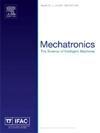Matrix-sensitivity-based active disturbance rejection control for hydraulic servo positioning systems with friction compensation
IF 3.1
3区 计算机科学
Q2 AUTOMATION & CONTROL SYSTEMS
引用次数: 0
Abstract
Accurate position regulation in hydraulic servo systems (HDU) plays a critical role in ensuring system stability, operational efficiency, and achieving high-accuracy performance. However, friction-induced nonlinearities, including Stribeck effects and internal friction dynamics, significantly impact tracking accuracy. This paper introduces a matrix-sensitivity-based active disturbance rejection control (MSADRC) method that compensates for friction without requiring an explicit friction model. By leveraging matrix sensitivity, MSADRC effectively decouples system dynamics and enhances control accuracy, particularly in suppressing frictional effects. A third-order extended state observer (ESO) first estimates total system disturbances, while a model predictive mechanism converts nonlinear time-varying disturbances into a feedforward compensation term. The resulting matrix sensitivity-based compensation optimally adjusts system response, ensuring improved performance. Experimental results show that MSADRC effectively mitigates nonlinear disturbances, reducing peak error by up to 55 % compared to conventional ADRC methods. This approach provides a reliable and efficient strategy to address adaptive friction compensation issues in hydraulic control systems.
基于矩阵灵敏度的摩擦补偿液压伺服定位系统自抗扰控制
在液压伺服系统(HDU)中,精确的位置调节对保证系统的稳定性、运行效率和实现高精度性能起着至关重要的作用。然而,摩擦引起的非线性,包括斯特里贝克效应和内摩擦动力学,显著影响跟踪精度。本文介绍了一种基于矩阵灵敏度的自抗扰控制(MSADRC)方法,该方法可以在不需要显式摩擦模型的情况下补偿摩擦。通过利用矩阵灵敏度,MSADRC有效地解耦了系统动力学,提高了控制精度,特别是在抑制摩擦效应方面。三阶扩展状态观测器(ESO)首先估计系统的总扰动,而模型预测机制将非线性时变扰动转换为前馈补偿项。由此产生的基于矩阵灵敏度的补偿优化调整系统响应,确保提高性能。实验结果表明,与传统的自抗扰方法相比,MSADRC有效地减轻了非线性干扰,峰值误差降低了55%。该方法为解决液压控制系统中的自适应摩擦补偿问题提供了一种可靠、有效的策略。
本文章由计算机程序翻译,如有差异,请以英文原文为准。
求助全文
约1分钟内获得全文
求助全文
来源期刊

Mechatronics
工程技术-工程:电子与电气
CiteScore
5.90
自引率
9.10%
发文量
0
审稿时长
109 days
期刊介绍:
Mechatronics is the synergistic combination of precision mechanical engineering, electronic control and systems thinking in the design of products and manufacturing processes. It relates to the design of systems, devices and products aimed at achieving an optimal balance between basic mechanical structure and its overall control. The purpose of this journal is to provide rapid publication of topical papers featuring practical developments in mechatronics. It will cover a wide range of application areas including consumer product design, instrumentation, manufacturing methods, computer integration and process and device control, and will attract a readership from across the industrial and academic research spectrum. Particular importance will be attached to aspects of innovation in mechatronics design philosophy which illustrate the benefits obtainable by an a priori integration of functionality with embedded microprocessor control. A major item will be the design of machines, devices and systems possessing a degree of computer based intelligence. The journal seeks to publish research progress in this field with an emphasis on the applied rather than the theoretical. It will also serve the dual role of bringing greater recognition to this important area of engineering.
 求助内容:
求助内容: 应助结果提醒方式:
应助结果提醒方式:


